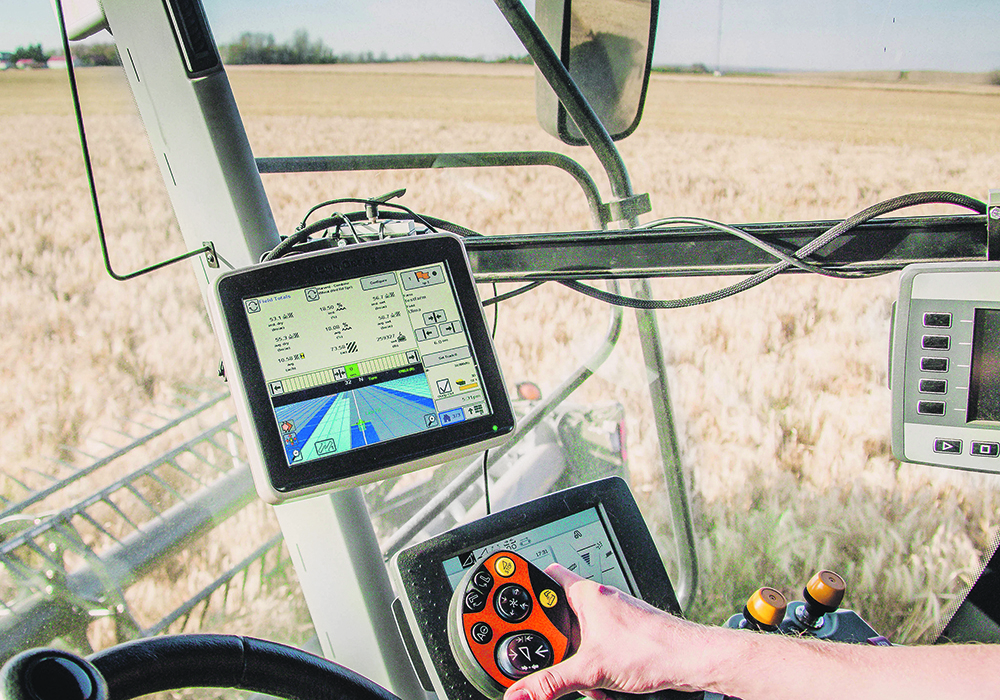Farmers need to ask themselves what they’re giving up in return for the benefits of downloading an app or sharing information with a company or online platform, says a vice-president of an online grain marketing network.
“We need to push people to make sure their data is being used responsibly, so who are you sharing it with?” said Mike Witkowicz, vice-president of strategy and business development at Ag Exchange Group in Winnipeg.
“What’s their data policy? Do they take your data, and do they sell it? Do they monetize it on you? Do they anonymize it or anything like that? And that’s the real thing that I think farmers need to be very cognizant of.”
Read Also

Drones now used to assess wildlife crop damage in Saskatchewan
Wildlife damage in Saskatchewan crops is now assessed by drones and artificial intelligence.
Farming is increasingly becoming digitized, said Witkowicz. It aims to reduce inputs and maximize yields through advances in technology that require access to broadband internet, allowing producers to gather data about nearly every aspect of their farms using things such as sensors, drones and satellites.
The trend is part of the Internet of Things, which refers to potentially billions of interconnected, self-regulating smart devices and automated equipment around the world. It’s being made possible through the growing affordability of increasingly powerful computer chips and the widespread availability of wi-fi.
Along with such capabilities come increasing responsibilities for farmers to ensure their data is secure and isn’t being misused, said Witkowicz, who was a speaker at the recent AgSmart expo at Olds College in Alberta.
For example, sharing things such as virtual boundary maps could potentially lead to farmers being targeted by criminals such as hackers or thieves, he said during an interview. The technology is intended to help producers with everything from defining fields for automated equipment to controlling livestock.
“You know, again, I’m not trying to be a conspiracy theorist or anything else, but we need to stop and question what we’re giving away, so are you giving away your land locations? Are you giving away what your assets are because there’s some great apps out there that you can list out all your assets.”
Smartphones and apps have become such an everyday part of people’s lives that most people no longer think about what they’re doing, said Witkowicz.
“I think we get comfortable. We get annoyed with the little pop-ups after we download something, and so we just hit allow and we’ve given (our information) away.”
Such complacency extends to the agriculture industry, with companies saying, “ ‘we’ll just put (data) online, then it’s digitized and it’s up in the cloud.’ Well, does it need to be?
“And that’s the stuff that I think the farmer needs to say: ‘What am I giving? What am I going to get back, and do I really need it at that level?’ And if I do, great, but if I don’t, maybe we just slow down on what we’re sharing.”
Although precision agriculture is being touted as a way to minimize inputs such as fertilizers that give off nitrous oxide, a potent greenhouse gas, it is raising a red flag for the National Farmers Union.
Such technology is being viewed as “part of a larger push to really entangle farmers in corporate-controlled digital data platforms where farmers start to lose their autonomy and lose control of their data, and the data is aggregated by others and can be used against farmers,” said director of climate crisis policy and action Darrin Qualman during an earlier interview.
As a company that aims to improve the global marketing of grain between growers and buyers through its CXN360 online trading platform, Ag Exchange Group was recently certified Ag Data Transparent by a non-profit United States organization called Ag Data Transparency Inc.
Ag Data Transparency Inc. audits ag data contracts of companies to ensure they meet certain core principles ranging from farmer education and data ownership to data retention and availability, giving successful applicants the right to display the Ag Data Transparent logo.
Although companies that undertake the audits and become certified currently do so on a voluntary basis, Witkowicz was concerned “things could go awry” and standards could eventually be imposed through government legislation, “which I don’t think any of us want.”
Companies must go beyond thinking about how they alone stand to benefit from a particular digital service or technology to consider how their customers will also benefit, he said.
“Would you sign up your family to it — to really hit at the heartstrings, could you answer to your mom? But if it’s not something that you can have full conviction or that you’ve got the integrity behind, then you’ve got to really question should you be doing it or not.”
















